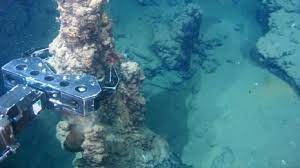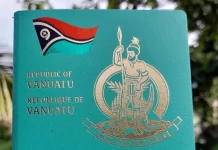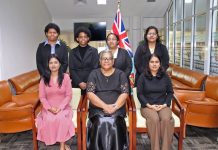Tonga civil society strongly opposes deep sea mining and reaffirms a total ban on all mining activities, saying the region including the kingdom needs to act.
That position was made clear during the recent Pacific Blue Line webinar hosted by the Pacific Network on Globalisation (PANG) and partners, a series that advocates against threats of deep sea mining.
Between 2019 and 2020, groups in Tonga were pushing for a moratorium on deep sea mining when mining company DeepGreen Minerals started a heavy public push for the approval of licenses. “There seems to be a lot more messaging from Deep Green”, recalls Pelanatita Kara from the Civil Society Forum of Tonga (CSFT), talking about the Canadian mining company.
With their “engagement and pushing on a space, there was a feeling that we need to actually re-engage our people nationally.”
Kara said national consultations far and wide within the kingdom had strongly opposed deep sea mining in Tonga’s waters, and it had formed the basis of a national position on a ban by the end of 2020.
“The message is: people in the island don’t want any deep sea mining activity in the EEZ, nor the area. So that was the loud message that came through.”
A veteran civil society leader, Siotame Drew Havea, noted that precedence for protecting the environment was set early, way back in 1845 at the founding of modern Tonga, when Tupou I united the kingdom under Christianity.
“I think what’s interesting about Tupou I is that he valued the creation of God and he sort of saw that God has gifted the people of Tonga with this great environment, great soil, the ocean in the abundance of livelihood for people to live on. And I think Tupou I valued and saw the need in order for us to preserve, in order for us to conserve, and in order for us to protect this environment, he emancipated the people of Tonga in 1862.”
It was this long history that helped inform the people of Tonga in their ongoing opposition to deep sea mining last year, he said.
“I think that we have won this consultation and are constantly advocating with the people for their support on this particular issue.”
A long history threatened by pressure from mining companies, “I don’t think we have time to talk anymore. Time is running out,” he warned.
Across the Pacific, positions like his are essential to balancing what some see as pro-mining interests at regional, diplomatic, and governmental levels.
Those conflicting agendas are shaping up to be a defining issue of this still new decade – shut down potentially polluting industry, or business-as-usual extractive exploitation despite warning against global warming catastrophe.
Exactly that sort of outcome is what worries Dr Ungatea Kata, a renowned linguist and director of Tupou Tertiary Institute (TTI), with more than 30 years experience as an educator.
“We from TTI, in which I work as a representative from non-government systems, feel very strongly to support that position in terms of an answer of, you know, governments being lured to by the promise of money.”
She referred to the fact that Pacific governments have financial situations with heavy dependence on overseas support.
“The perception that we are tied to those to those international organizations or governments that are funding our own Pacific countries, I think it has a direct influence on this perception that we need, on this perceived need, that we need deep sea mining, somehow to offset some of our own dependency on those governments.”
Dr Kata suggests that whole concept of deep sea mining needs to be clearly presented to our governments as a false concept with little-to-no returns.
“We have Nauru as a very, very clear example of how something that is promised to have economic benefit can end up to be a disaster; natural disaster, financial disaster.”
“So we can see from the case of Nauru that they had a lot of money, but where is that money now? Is the country in a stronger financial state 50 years from after the discovery of phosphate in Nauru?”
In praising the Tonga civil society stances on deep sea mining, Dr Claire Slatter from Fiji suggests a regional campaign focus not just on regional governments but also global authorities.
In particular, calling on the International Seabed Authority (ISA) to cancel all existing seabed licenses and ban future approvals.
“I think strongly that here in the Pacific, we need to forge strong partnerships, of coalitions that have the same aims and same ideas and same visions, so that we can work towards banning of deep sea mining in the Pacific, and in Tonga, added Dr Kata.
SOURCE: PANG/PACNEWS















